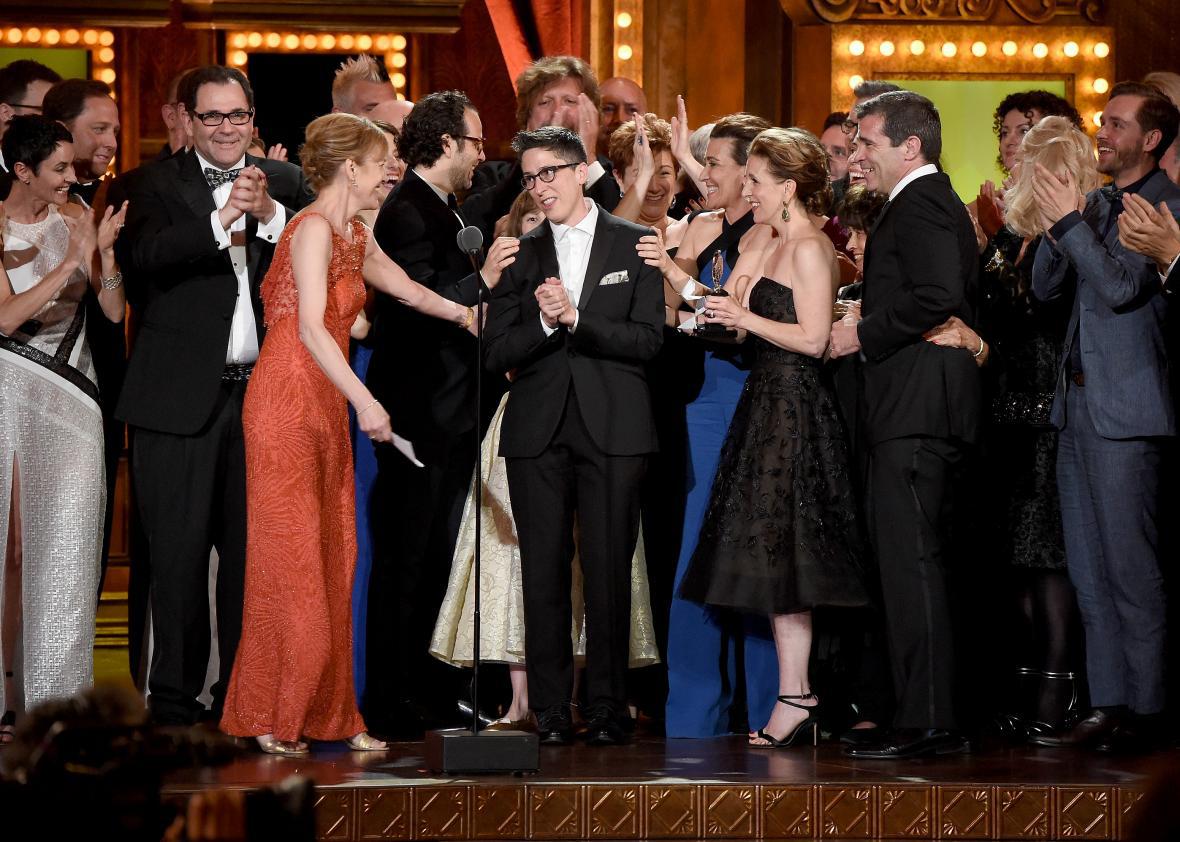When Duke University chose to have its incoming first-year undergraduates read Alison Bechdel’s 2006 graphic memoir Fun Home, the selection committee knew they were courting controversy. Bechdel’s book explores questions of sexual identity with unusual frankness and clarity, and it does so in a long-maligned medium. Acknowledging that these themes trouble some, Simon Partner, a professor of history who had contributed to the choice, suggested to Duke Today that the book’s very complexities helped make it worth reading. “I think this [controversial material], in turn, will stimulate interesting and useful discussion about what it means, as a young adult, to take a position on a controversial topic,” Partner told the paper in April.
Now, some students have taken a very public stand on Fun Home, but they’ve done so by refusing to engage with the book in the first place. The Duke Chronicle reports that a freshman named Brian Grasso “posted in the Class of 2019 Facebook page [on] July 26 that he would not read the book ‘because of the graphic visual depictions of sexuality,’ igniting conversation among students.” In the ensuing conversations, some students reportedly agreed with Grasso, claiming that they objected to the book and its content on moral grounds.
In the wake of the Chronicle’s story, a handful of other publications covered Grasso’s objections, arguably bringing undue attention to a relatively minor protest. This was, after all, a debate that primarily unfolded on Facebook. Nevertheless, the story still stands out, if only because it speaks so richly to the very issues Bechdel’s book explores.
Stories about Grasso’s complaints offer little indication as to how he determined that the book’s content “was insensitive to people with more conservative beliefs.” While it does include brief representations of graphic sex, it can hardly be described as pornographic. Grasso and his peers express little interest in this fact, apparently objecting to the mere representation of homosexuality. It is the very idea of gay sex that shocks, and it must be ignored at any cost.
This is far from the first time that Fun Home has been taught at Duke. Gerry Canavan, now an assistant professor of English at Marquette University, included the book in a Duke summer course called “Comics as Literature” while he was a graduate student there. “I would say it was very well received,” he wrote to me, “one of the more popular books I taught that summer.” He claimed that he’s never received flak from students about his decision to teach the book, even at Marquette, which is a Catholic school. (Founded by Methodists and Quakers, Duke is now a nonsectarian institution.)
Having taught Fun Home at both secular Cornell and Catholic Georgetown, I’ve shared Canavan’s experiences, finding that students welcome its various challenges. Describing a scenario that squares with my own experiences, Canavan observed, “students understand that” even the book’s most graphic moment “is not remotely gratuitous, but a key part of how the story is told.” Grasping this, however, means actually reading the book, and recognizing how its puzzle-box-like chapters interlock. Students like Grasso do themselves a gross disservice when they simply flip through the memoir in search of objectionable content.
Ultimately, these failures of understanding reflect the book’s central dilemma all too well. Unable or unwilling to come to terms with his sexuality, Alison Bechdel’s father, Bruce, lives his life in fragments, experiencing the objects of his desire—and his desire itself—piecemeal. Alison, by contrast, works to put those pieces together again, struggling to understand the shape of her father’s life even as she traces the contours of her own.
Grasso and his peers imply that they’re being bullied when they’re encouraged to read Fun Home. But when they refuse to engage, they’re not really pushing back, they’re hunkering down. Much like Bruce in one of the book’s most famous sequences, they’re choosing to live their lives in narrowly circumscribed circles, willfully blind to the stories unfolding around them.
